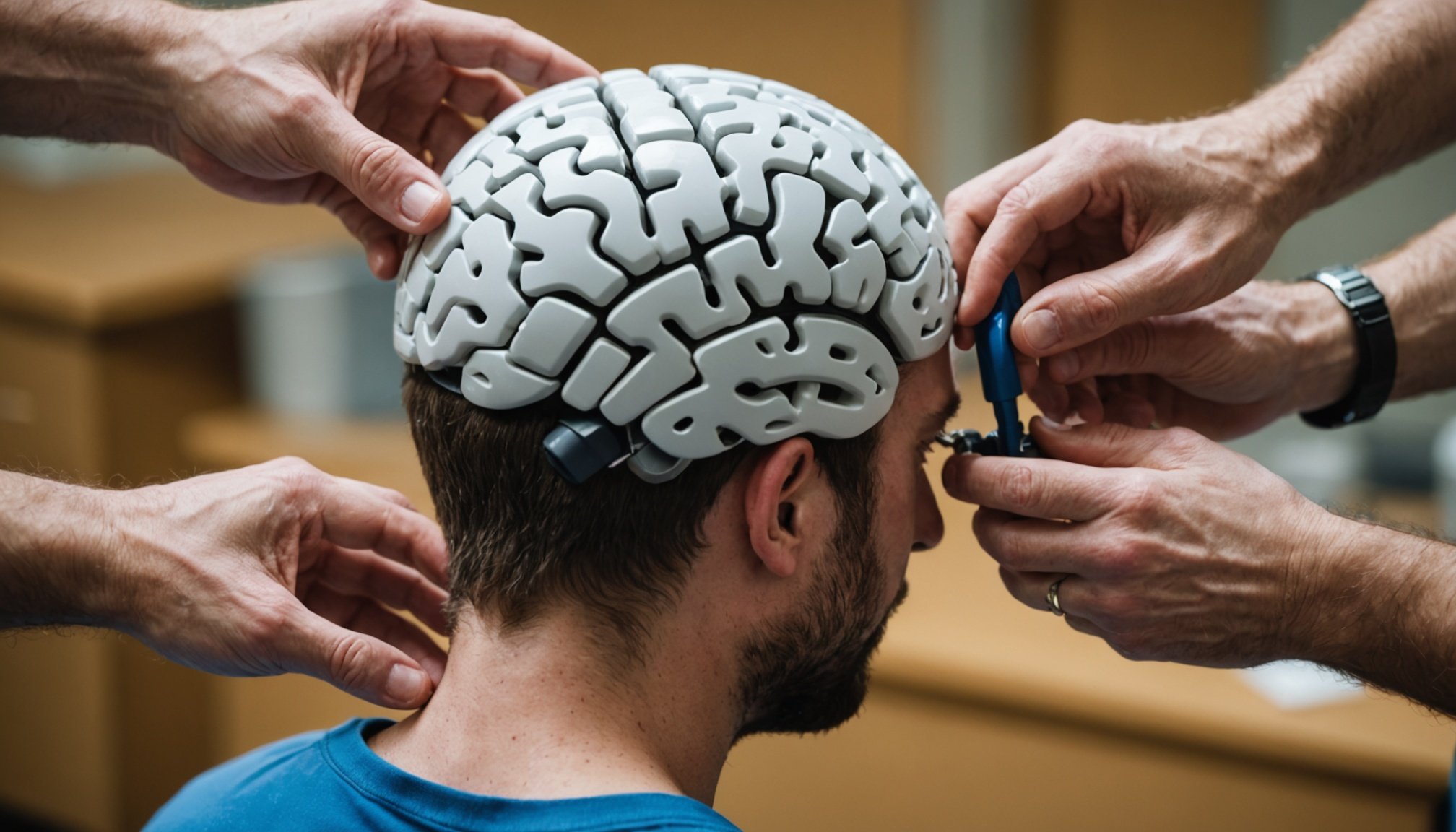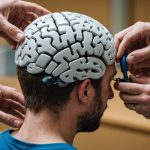Understanding Traumatic Brain Injuries and Their Effects
A traumatic brain injury (TBI) refers to any type of brain dysfunction caused by an external force, often seen in adults due to accidents, falls, or sports injuries. These injuries can vary significantly in severity, from mild concussions to severe brain damage. The prevalence of TBIs is a significant concern, impacting millions globally, with often long-term challenges.
The effects of traumatic brain injuries are diverse and can affect many aspects of a person’s life. Patients may experience cognitive difficulties, such as memory loss or impaired judgment. Physically, they might struggle with headaches, dizziness, or sensory issues. Recovery from a TBI can be a lengthy and complex process, requiring medical intervention and rehabilitation to manage these symptoms effectively.
Also read : Empowering Epilepsy Management: Innovative Neurofeedback Strategies for UK Neurologists
Psychologically, traumatic brain injuries can lead to anxiety, depression, or mood swings, significantly affecting one’s emotional well-being. The challenges in recovery often include adapting to these new limitations and finding ways to improve quality of life. Understanding the multifaceted impact of TBIs helps in supporting those affected and tailoring treatments to meet individual needs.
The Role of Occupational Therapists in Recovery
Occupational therapists play a critical role in the recovery journey, especially for those recovering from Traumatic Brain Injury (TBI). Their primary responsibility is to enable individuals to engage in meaningful activities or occupations, which are essential for health and well-being. By focusing on holistic treatment, they ensure that not just the physical, but also the cognitive and emotional needs of patients are addressed.
Additional reading : Empowering Low-Risk Pregnancies: Strategies for UK Midwives to Advocate Natural Birthing Techniques
Why is occupational therapy important in TBI recovery? Occupational therapists facilitate skill rebuilding and help patients adapt to new ways of performing daily tasks. This includes physical rehabilitation and cognitive exercises designed to improve memory and problem-solving skills. They work closely with patients to develop personalised strategies that cater to individual needs.
Occupational therapy for TBI patients is a structured and goal-oriented process. It often starts with an initial evaluation to understand the patient’s abilities and challenges. Subsequently, a tailored recovery plan is developed, which might include activities like meal preparation, dressing, or leisure pursuits, emphasising patient autonomy. Regular assessments ensure the therapy adapts to the patient’s progress. This systematic approach underlines the occupational therapist’s role in not just treatment, but in empowering patients to reclaim their life.
Therapeutic Approaches Used by UK Occupational Therapists
Occupational therapists in the UK employ various therapeutic approaches to support their clients. These professionals rely heavily on evidence-based methods to ensure interventions are effective and tailored to individual needs. By integrating both cognitive and physical rehabilitation techniques, therapists aim to optimize patient outcomes and facilitate greater independence.
Cognitive Rehabilitation Techniques
Cognitive rehabilitation is a vital area within occupational therapy. It involves targeted interventions to enhance recovery by improving thought processes. Strategies may include memory exercises, attention tasks, and problem-solving activities. These methods help patients restore cognitive functions, making daily interactions smoother.
Physical Rehabilitation Strategies
Physical rehabilitation focuses on enhancing mobility and coordination through tailored exercises. Techniques might involve strengthening exercises or motor planning tasks to rebuild physical capabilities. By implementing these rehabilitation techniques, patients can achieve greater autonomy in physical activities and routine tasks.
Support for Activities of Daily Living
Occupational therapists provide essential support for activities of daily living, emphasising cognitive interventions and physical exercises. This support includes training in personal care, meal preparation, and safe mobility practices. By promoting skills for independence, therapists help improve the quality of life for their clients, fostering a sense of empowerment and self-reliance.
Case Studies and Success Stories
Exploring real-life impact through case studies provides valuable insights into therapy’s effectiveness. By examining recovery journeys, one can understand the meaningful transformations that occur. These success stories highlight instances where interventions have considerably enhanced the quality of life for patients and their families.
Take Sarah’s journey, for instance. Initially struggling with severe anxiety, Sarah’s tailored therapy sessions over six months not only alleviated her symptoms but also empowered her to pursue professional goals she had long deferred. This showcases the tangible benefits and the real-life impact of consistent therapeutic support.
Such testimonials from patients themselves underscore the therapy’s efficacy. Another inspiring story is of Mark, whose family openly testifies about the positive turnaround in his life post-therapy, emphasising improvements in both personal and social domains.
By delving into these impactful narratives, the true value of therapeutic intervention is revealed. They serve as compelling evidence of how therapy can significantly improve overall quality of life. These stories motivate others to consider therapeutic options and enable informed decisions, highlighting personal growth and healing possibilities. The consistent theme across all these success stories is the newfound strength and life improvements following intervention.
Statistics and Outcomes of Occupational Therapy
Occupational Therapy (OT) plays a significant role in the recovery process for patients with traumatic brain injuries (TBI). According to recovery statistics, TBI patients who receive OT have shown substantial improvements compared to those who undergo traditional care. Studies indicate that about 80% of TBI patients experience enhanced daily functioning due to targeted therapy outcomes.
The efficacy of OT is evident when comparing it to traditional rehabilitation methods. Patients engaging in OT generally demonstrate higher success rates, with measurable improvements in cognitive and physical abilities. This efficacy is attributed to OT’s customized, patient-centered approach, which tailors activities to individual needs and recovery goals.
Long-term benefits underscore the value of OT in rehabilitation. Research consistently highlights sustained improvements in quality of life and independent living skills. These outcomes are linked to OT’s focus on practical skill-building and environmental adaptations, reinforcing its role as a critical component in comprehensive TBI recovery plans.
In summary, Occupational Therapy not only boosts immediate recovery statistics but also facilitates lasting therapy outcomes. By emphasizing personalised care, OT proves its efficacy in promoting holistic recovery for TBI patients.
Training and Expertise of Occupational Therapists
When considering an occupational therapist’s qualifications, it’s crucial to recognize the comprehensive journey they undergo to excel in their field. In the UK, becoming an occupational therapist begins with completing a bachelor’s degree in occupational therapy. This academic foundation is pivotal in equipping them with the necessary skills before advancing into practical applications. Specialised certifications further enhance an occupational therapist’s professional expertise, offering tailored approaches to specific health challenges.
The significance of ongoing professional development cannot be overstated. Occupational therapists engage in continuous learning to stay updated with the latest therapeutic practices, which is essential for delivering effective care. This continued education ensures that their therapy methods are both evidence-based and innovative, ultimately enhancing patient outcomes.
Moreover, occupational therapists are encouraged to seek opportunities for specialised training, which might encompass areas such as mental health, paediatrics, or gerontology. By doing so, they broaden their scope of practice and improve their ability to address diverse patient needs. The commitment to developing their expertise plays a pivotal role in their professional journey, fostering a deep understanding of complex therapeutic processes and ensuring that they remain at the forefront of their field.
Resources for Patients and Families
Navigating the path post-injury can be daunting, but patient resources and family support systems can provide invaluable guidance. Numerous professional organizations exist to assist both patients and families in understanding and managing recovery processes.
Key organizations such as the Brain Injury Association and the National Stroke Association offer comprehensive resources, from educational materials to support groups. These organizations can help families better understand the challenges and realities of recovery. Additionally, they provide pathways to connect with others who are experiencing similar journeys.
To effectively engage in therapy, family education becomes crucial. Many hospitals and clinics offer workshops and counseling sessions to guide families through the rehabilitation process. This not only fosters a supportive environment but also empowers family members to take an active role in the therapeutic journey.
Finally, understanding the intricacies of the healthcare system is essential. Professional organizations often provide guidance on how to navigate insurance claims, find specialised care, and access financial aid. By utilizing these resources, families can alleviate some of the stress associated with medical logistics, ensuring a smoother path towards recovery.











